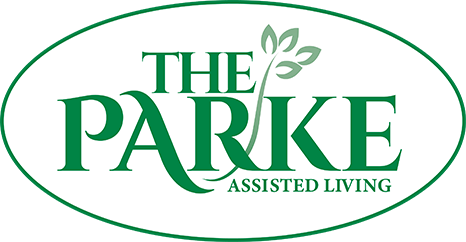Aging parents can sometimes send out a call for help in their behaviors rather than their words. You may have a parent who loves to dress up daily and typically keeps their home in excellent shape with dishes done daily, housecleaning done weekly, and yard work done promptly when it’s needed. Then one day, you stop by to visit and notice your parent hasn’t groomed themselves, or their mail appears to be piled up and unattended—and they don’t seem quite like themselves.
What do we do when we notice our loved one may need some help or may need to consider moving into an assisted living community? Here are some things to look for and solutions to consider:
1. How is your loved one doing with their home, car maintenance, and driving?
When you look at your loved one’s home, are the appliances, heating and air conditioning unit, and yard in good repair? Are there signs things are being overlooked? How is the car maintenance? Is it up to date? How is your loved one’s driving? One easy test is to ask them to drive next time you go somewhere together. Pay attention to their ability to focus and their overall safety behind the wheel.
Solution: If your loved one is not able to keep up with the hefty responsibilities involved in home ownership, it may be time for a transition. At an assisted living community, they can exchange the duties of home maintenance for time to enjoy life!
If your loved one isn’t keeping up with their vehicle maintenance, they could end up getting in an accident or causing one on the road. And if they shouldn’t be behind the wheel any longer, it is a good time to consider transitioning into an assisted living community so they no longer need to drive.
2. Does your loved one need help with activities of daily living (ADLs)?
Sometimes our loved ones have trouble with things they had no difficulty with a few years ago, or even a few months ago. Is your loved one struggling with grooming, bathing, walking, meal preparation, or eating?
Solution: It may be time to look into transitioning into an assisted living community where the large majority of the residents need help with at least a couple of the ADLs. One of the best perks about an assisted living community is that residents have the dignity of doing what they can for themselves while receiving help where needed. There’s honor and dignity in maintaining as much independence as possible throughout life, and an assisted living community provides that.
3. Is your parent wandering away?
It can be frightening if a loved one starts wandering away. The need to look into memory care specific assisted living communities is vital if you have this situation.
Solution: Find an assisted living community for your loved one where the staff has specialty training for memory care in order to provide a safe and secure place for them to live.
4. How is your parent’s balance? Are they at risk of falling?
As people age, their balance can decrease, causing greater risk of falls and injury. If your loved one had an unexpected fall at home, who would find them? How would they call for help? Would their spouse be able to help them off the floor? These are some concerning thoughts many have as their parents age.
Solution: Consider providing necessary precautions to prevent falls. Build in the help your loved one needs should an unexpected fall occur. One way to help prevent falls is to keep your loved one’s walking areas free from clutter, throw rugs, and things like carpet edges that could cause a fall. Another way to decrease the possibility of falls is to install universal rails in strategic locations for their safety. Put a rail or bench or both into their shower space, near their dressing space, and even along hallways so they have something to grab should their balance get thrown off.
Understand it may be time to consider an assisted living community so your loved one has a safe place to live and help at their fingertips if they need it. The comfort and peace of mind it gives families to know their loved one is safe and well cared for is worth it.
5. Is one of your parents caregiving for the other?
Be careful to watch for signs of caregiver burnout. The person giving all the care may be burdened beyond what is healthy. The 24/7 needs of their spouse can drain the very vitality out of the caregiver. Sometimes the stress of caregiving can lead to illness in the caregiver themselves. The risks of caregiving can get to the point where they truly don’t outweigh the benefits of doing it alone. Caregivers can end up with symptoms of PTSD such as anxiety, hyper-vigilance, avoidance behaviors, and disturbing thoughts.
Solutions: Short-term solutions can include putting the spouse in need of care into a respite care program for a couple of days. This will give them the opportunity to experience an assisted living community on a short-term basis to see if it seems right for a long-term option.
Another short-term solution is to provide breaks regularly for the spouse who is caregiving so they can keep themselves in good health. At some point, not only is an occasional respite needed, but a long-term solution for the spouse in need of care may be the best solution. It’s wise to look into a move into assisted living in order to do what is best for both spouses.
Schedule a Tour of The Parke Assisted Living Community
The Parke is one of the most beautiful assisted living communities in the Tulsa area. Schedule a tour and learn why so many families appreciate the activities and lifestyle, care, and security of this attractive assisted living community.

